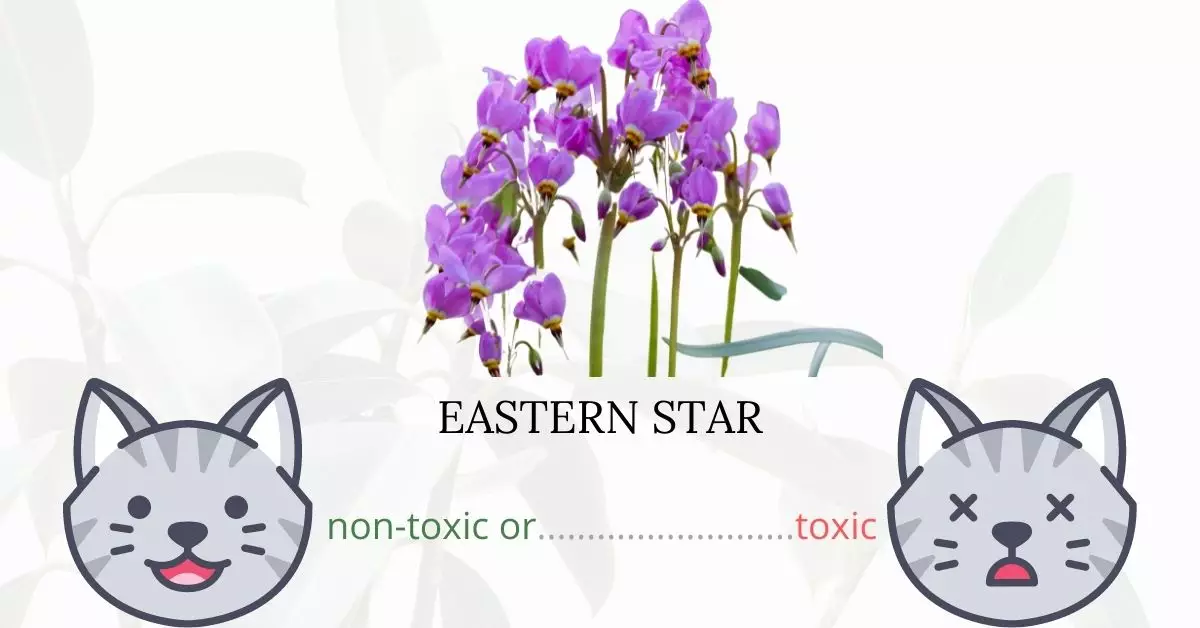Eastern Star, also known as Sweet William, is indeed harmful to cats due to the presence of triterpenoid saponins within its leaves, which are often cultivated as houseplants or for their medicinal properties for humans. Ingesting or coming into contact with these saponins can lead to skin irritation and oral discomfort in cats, and consuming substantial amounts may result in gastrointestinal distress.
This article is the product of a collaborative effort with a team of experienced Doctors of Veterinary Medicine (DVMs), who have offered their expertise to ensure the information provided is both precise and current, focusing on the possible risks and impacts of various plants, including Eastern Star, on cats. To reinforce the validity of our information, we have also conducted thorough research using high-authority websites, such as ASPCA and PetMD, to scrutinize every plant discussed in our articles. Through the conjunction of professional insights and rigorous research, we aim to offer reliable guidance on the safe interaction of plants and pets.
Clinical Signs of Eastern Star or Sweet William Poisoning in Cats
When a cat interacts with, ingests, or even simply smells the Eastern Star or Sweet William plant, it can experience a range of clinical signs due to the toxic irritants found in the plant’s leaves. These toxic irritants, specifically the triterpenoid saponins, cause inflammation and irritation upon contact, whether it’s internal or external. The clinical manifestations of poisoning from this plant can typically be mild to moderate but are crucial to recognize for the well-being of the cat.
- Nausea: The ingested irritants disrupt the normal functioning of the gastrointestinal system, inducing a feeling of discomfort and sickness in cats, manifesting as nausea. This can be identified through signs such as drooling, lethargy, and lack of appetite.
- Vomiting: The ingested saponins irritate the stomach lining, leading to vomiting, which is the body’s mechanism to rid itself of the harmful substances. Persistent vomiting may occur, leading to dehydration and weakness.
- Diarrhea: The irritants disturb the normal bowel function, resulting in diarrhea. This can lead to dehydration and electrolyte imbalance if not addressed promptly.
- Dermatitis: If a cat’s skin comes into contact with the plant, the toxic saponins can cause dermatitis, characterized by inflammation, redness, itching, and possible blistering. This is the body’s external response to contact with the harmful substances present in the plant.
Prompt recognition and appropriate intervention are pivotal in managing the poisoning, and any cat displaying these symptoms after interacting with Eastern Star or Sweet William should receive immediate veterinary attention.
First Aid and Treatment of Eastern Star or Sweet William Poisoning in Cats
If you find your cat chewing any part of Eastern star, remove it immediately and rinse off your cat’s mouth. Take your cat to the veterinarian and bring a plant sample for better diagnosis.
To remove all remaining Eastern star toxins in the cat’s stomach, The veterinarian will either induce the cat to vomit with hydrogen peroxide or perform a gastric lavage — this will prevent the cat from digesting any more toxins. After the stomach contents have been eliminated, another mouth rinse will be required.
Activated charcoal can also be given to your cat to help him bind all of the toxins in his stomach and excrete them through feces. Other drugs, depending on your cat’s needs, might be also prescribed by the veterinarian. Intravenous hydration therapy is also necessary, especially if your cat has been vomiting a lot.
Recovery from Eastern Star or Sweet William Poisoning in Cats
While Eastern star symptoms can cause discomfort, the poisoning is usually not fatal to cats. Most cats who have ingested Eastern Star to the point of poisoning will recuperate fully up to 24 hours after the incident.
Prevention of Eastern Star or Sweet William Poisoning in Cats
As a cat owner, equip yourself with knowledge about toxic plants that can harm your feline companions. Avoid growing Eastern stars and other potentially toxic plants in your yards and gardens. Keep your cat’s outdoor activities limited. As much as possible, do not et your cat wander off alone outside your house. If you are leaving your cat at home, it is better to keep them safe and secured inside a cat cage or a playpen.
If you love plants but have cats at home, check out these lists:





